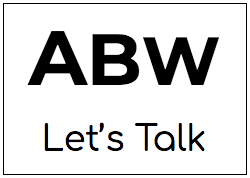The Dark Side of Hangover-Free Booze
A synthetic called Alcosynth promises the positive effects of drinking without the nasty next-day consequences. Is it too good to be true
We’ve heard just about every hangover remedy in the book, from the age-old advice to drink a glass of water and take two aspirin before bed, to recommendations for the boozy “hair of the dog.” But what if a hangover could be avoided altogether?
According to Professor David Nutt of the Imperial College London, hangovers will be gone by 2050 thanks to a synthetic he patented known as “Alcosynth.”
“It will be there alongside the scotch and the gin. They’ll dispense the Alcosynth into your cocktail and then you’ll have the pleasure without damaging your liver and your heart,” he told The Independent.
Formerly a member of the Advisory Council on the Misuse of Drugs, neuropsychopharmacologist professor Nutt has reportedly patented close to 90 different Alcosynth compounds. Two are undergoing testing for widespread use.
Nutt asserts that the past few decades have led to greater understanding of “the brain science of alcohol,” allowing scientists to create non-toxic substitutes that will replicate the positive effects of alcohol while avoiding the not-so-pleasant consequences.
This isn’t the first time claims of a side-effect-free alcoholic substance have been publicized.
Earlier this year, a piece in The Pyongyang Times claimed that Koryo Liquor, a ginseng-based beverage from North Korea, “causes no hangover.”
“Hangover-free alcohol substitutes are kind of like the holy grail,” Dr. George Koob, director of the National Institute on Alcohol Abuse and Alcoholism, told The Daily Beast. He added that while “Dr. David Nutt is a very well-respected researcher,” his reaction to Alcosynth is “a bit of skepticism.”
Koob said that he is unaware of “any drugs that don’t produce an opposite effect later on; it may substitute for some of the effects of alcohol, but whenever the brain sees a drug that changes something, the brain reacts to that.”
The idea of a hangover-free alcohol substitute challenges his long-held belief that “there’s no free ride in the brain.”
“A hangover is like a mini withdrawal syndrome,” Koob said. The idea that you could take any drug, including Alcosynth, with “no afterburn or reaction to that perturbation seems unlikely.”
On the other hand, Alcosynth may prove to be a useful compound for treating alcoholism and alcohol dependence, Koob argued.
If Alcosynth could successfully manipulate the neurotransmitter GABA—one of the compounds responsible for the sensations we associate with being drunk—without harming other parts of the body, this would mean that the compound could simulate many of the sensory aspects of being intoxicated without other negative physiological effects.
If this is true, Alcosynth could prove “very useful for the treatment of alcohol disorders in the long term,” Koob said. “It may even help people move from excessive drinking to deciding they want to do something about it.”
When asked if the promise of a hangover-free alcohol substitute could increase binge-drinking and risky drinking behavior, however, Koob said it was plausible.
“There is actually old data to suggest, and part of the lore of treatment of alcohol use, that substitutes like benzodiazepines”—one of the substances used to aid alcohol withdrawal—“can actually cause increased drinking, like to whet the appetite of someone who is severely dependent.”
Further, “if Alcosynth impacts subjective intoxication [i.e., the feeling of being drunk] without reducing cognitive impairment, it could leave users quite vulnerable to intoxicated risk taking,” says Dr. William R. Corbin, professor of Psychology at Arizona State University and expert on alcohol misuse and related risk behaviors.
Since “subjective experiences of intoxication recover relatively quickly within a drinking episode, whereas the impact on cognition and behavioral control is prolonged,” according to Corbin, “this often leaves individuals feeling like they are not intoxicated despite ongoing cognitive impairment that may result in poor decision-making (e.g., drinking and driving) and risk-taking.
“In addition,” Corbin continued, “if Alcosynth reduces the level of rewarding effects, people may simply choose to drink traditional alcoholic drinks or use other drugs that give them the desired effects. This may be particularly true for those at greatest risk.”
Corbin highlighted another potential danger of using Alcosynth: interactions with other substances.
“We don’t know anything about potential interactions with other drugs including traditional alcoholic drinks. If users combine Alcosynth with traditional alcoholic drinks or other drugs, the risks could be considerable.”
And alcohol alone isn’t responsible for the negative side-effects we associate with being hungover, like that mind-numbing headache and unbearable nausea.
“Another contribution to hangovers are what are called congeners. These substances are [basically] anything in alcohol besides alcohol and water, which people do get sensitive to,” Koob told The Daily Beast. So if Nutt’s alternative drinks contain congeners, said Koob, “presumably there would be some possible negative effect.”
That means that the compounds often responsible for that hangover are also responsible for a lot of the flavor in alcohol, such as whiskey. Vodka, for example has very few of these compounds since it is filtered and distilled repeatedly. So the question is: could an Alcosynth beverage ever have the flavor of a complex Scotch?
Another reason Alcosynth probably won’t replace alcohol by 2050? People don’t just drink to get drunk, said Nicole Austin, a chemical engineer and the Director of the American Craft Spirits Association.
“There are already plenty of ways to consume alcohol today that don’t result in a hangover,” Austin said. “The incentive to choose something that’s ‘hangover free’… is pretty low, unless you’re a binge drinker.
“Drinking only for the experience of being drunk and not for the rich experience of a fine beverage” isn’t how Austin would describe “most drinkers right now.”
“Humans have been imbibing alcohol produced by natural fermentation for about as long as we have been humans. I don’t anticipate that changing in less than 40 years… and it’s certainly not where the market is headed,” she said.
—with additional reporting by Noah Rothbaum



